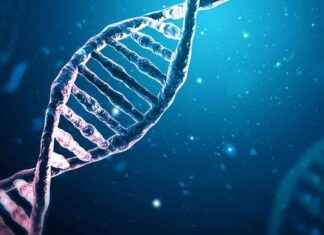Argentina will go to the polls for the first time in a context of inflation and distrust of politicians. This Sunday, August 13, primaries will aim to designate the candidates for the presidential election in October. The suspense remains total as to the designation of the future successor of Alberto Fernandez (related center left).
More than 35 million voters are called upon to pre-select both the parties that will be running on October 22 for the presidential election – this requires obtaining 1.5% of the votes nationally – and their candidates. Like a life-size, double-trigger sounding. Who really wants to lead Argentina, Latin America’s third-largest economy with spectacular agricultural and commodity potential, but the continent’s long-term sickness? Trapped in double-digit inflation for 12 years (115% year-on-year), massive IMF debt, 40% poverty.
Twenty-two “president vice-president” tickets are vying for the office. Only half a dozen will remain on Sunday evening in view of October 22, including two dominant blocs, from which the next president should emerge. The outgoing, Alberto Fernandez, strongly unpopular, does not represent himself. In the government camp (center left), Sergio Massa, Minister of the Economy, 51, is sure to win the primary, despite a minor candidacy on his left. The centrist Massa succeeded in rallying the Peronist camp and keeping the ear of the IMF. However, the fact of managing, for a year, an economy in intensive care plays against him.
In the right-wing opposition, a real, tight primary pits the mayor of Buenos Aires since 2015, Horacio Larreta, 57, who portrays himself as a moderate and follower of consultation, against a former Minister of Security, Patricia Bullrich , 67, who promises “shock” methods, both in terms of economy and security.
“It’s the big unknown: who will be chosen between Mr. Larreta and Mrs. Bullrich?” This election is very open, and this result will define the new electoral landscape,” said independent political scientist Carlos Fara.
A major interest of the PASO (open, simultaneous and compulsory primaries) is to give a trend, a barometer of the state of the forces, sometimes auguring the presidential election.
This was the case in 2019, when the primary score of Alberto Fernandez – the only pre-candidate of the Peronist camp – foreshadowed his presidential victory over Mauricio Macri. But the “life-size survey” aspect only comes into play in the event of a significant gap, as a lot can still happen in two months of campaigning.
But already, the PASO 2023 mark a break, with the absence of two dominant figures of Argentine political life in recent years: the Peronist Cristina Kirchner, 70, former head of state (2007-2015 ), and Mauricio Macri, 64, the liberal president who succeeded him in 2015, before being defeated by Alberto Fernandez in 2019.
Could the withdrawal of these two great rivals, antagonistic, divisive personalities herald a respite from the acute polarization of Argentine politics? Unless he signals a general disillusion, after two very contrasting presidencies, one liberal, the other interventionist, both of which have been bitterly disappointing.
“I want a government that gets the economy back on track, but I know it will take time, we have a lot of debt, and it won’t be easy to recover what’s been lost under others. I also want a government that listens to young people! “Launched AFP two days before the election Agustina Rossi, a student in Buenos Aires who, at 16, will vote for the first time.
“There is a growing disaffection among the electorate, in a country that had strong political identities,” diagnoses Juan Negri, a political scientist from Torcuato di Tella University. And analysts predict a strong abstention, more than 25%, despite the compulsory nature of the vote.
Unless this disenchantment benefits the “third man”, the ultraliberal-libertarian economist Javier Milei, with his fiery speech against the political “caste”, who caused a sensation in the legislative elections in 2021, his party becoming 3rd force in Buenos Aires ( 17.3%). But who could struggle to replicate this impact nationwide.
At the same time as the presidential candidates, Argentines vote on Sunday to preselect candidates for the Chamber of Deputies and the Senate, who will be partly renewed in the October 22 ballot.






